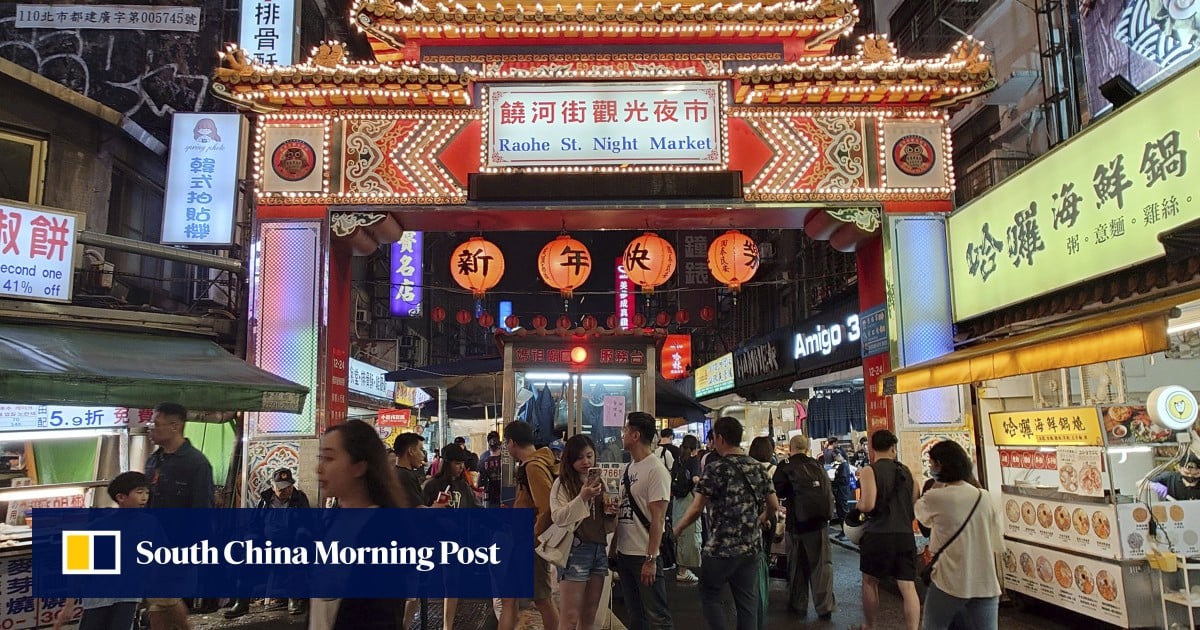Travel between the island and the mainland has become increasingly limited since 2019 as cross-strait tensions triggered restrictions.
“We sincerely invite Taiwan compatriots to visit the mainland more often, and we are also happy to see mainland people visit the treasured island of our motherland,” Xi said, adding the exchanges could “promote trust and forge close bonds of hearts and minds” between the two sides.
Citing Xi’s message, Zhu said the exchanges would have “bright prospects” despite “man-made obstacles” – a reference to travel restrictions imposed by Taipei authorities.
‘Willing to spend’: Taiwan tourism sector misses mainlanders as ban persists
‘Willing to spend’: Taiwan tourism sector misses mainlanders as ban persists
According to Zhang Wensheng, deputy dean of Xiamen University’s graduate institute for Taiwan studies, the resumption of travel will depend on “the policies of Taiwan authorities” following Lai’s inauguration as the island’s next leader on May 20.
Lai said his new government would handle cross-strait relations “in a rational and prudent manner” and maintain the peaceful status quo across the Taiwan Strait. He made the remarks during a meeting with a delegation from Washington-based think tank Centre for Strategic and International Studies on Tuesday.
Beijing will pay close attention to Lai’s inauguration speech, which is expected to outline the basic policies of the new government, including its approach to cross-strait issues.
Taiwan’s president-elect calls on Beijing to join party-to-party talks
Taiwan’s president-elect calls on Beijing to join party-to-party talks
Cross-strait tourism has typically mirrored the ups and downs in relations between the island and mainland China.
In July 2008, after Ma of the mainland-friendly Kuomintang became president of the island, mainland tour groups were allowed to visit Taiwan for the first time since China’s civil war.
Individual mainland Chinese tourists were allowed to travel to the island in 2011, with the number of cities allowing for individual visits gradually expanding to 47 as of 2015.
In early 2020, Taiwan suspended arrivals by all visitors, including those from mainland China, as part of its Covid-19 prevention measures.
In October 2022, the island lifted pandemic travel restrictions on visitors – except those from mainland China.
In another step in Taiwan’s gradual reopening, mainland Chinese living or studying overseas were allowed to travel to the island starting in September, while tourists based on the mainland remained barred.
Taiwan authorities said in November that they would lift restrictions on Taiwanese group tours to the mainland after Beijing authorities permitted them last May.
But Taipei walked back its reopening plans in February.
It suspended the process for Taiwanese travellers to join group tours to mainland China, except for those with scheduled trips between March and May, citing Beijing’s refusal to reciprocate by allowing mainland tour groups to visit Taiwan.
Mainland China was once the biggest source of inbound tourists to Taiwan, with the number exceeding 2.7 million in 2019, accounting for 23 per cent of the total.
The number of mainland tourists visiting the island fell to just over 220,000 in 2023, according to data from Taiwan’s Ministry of Transportation and Communications.







